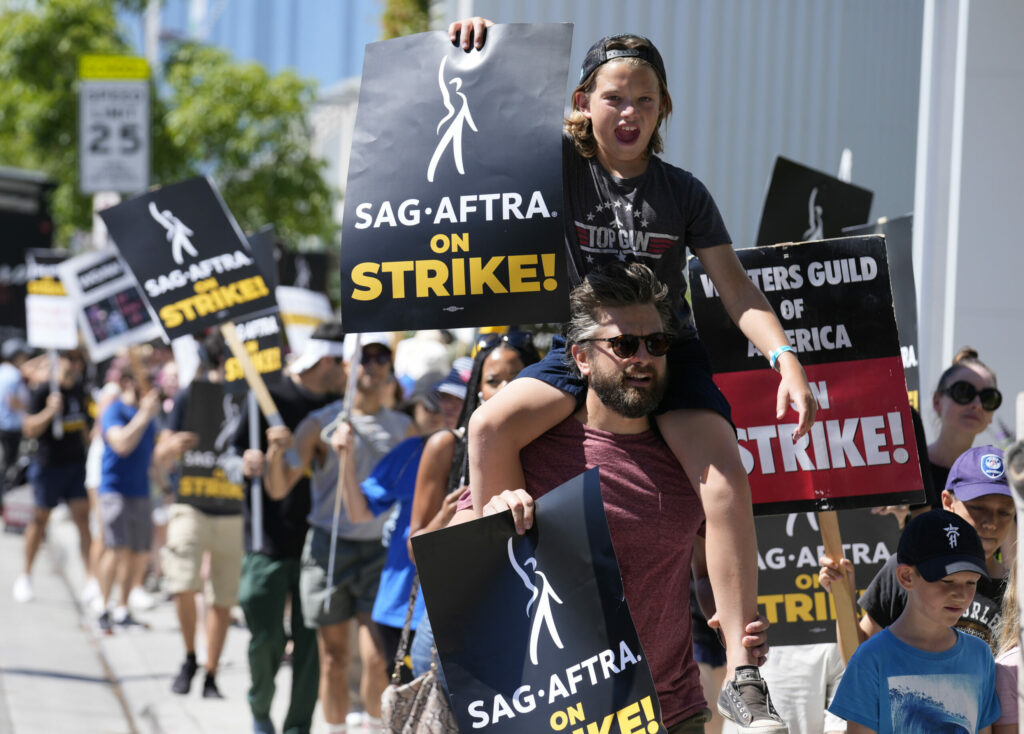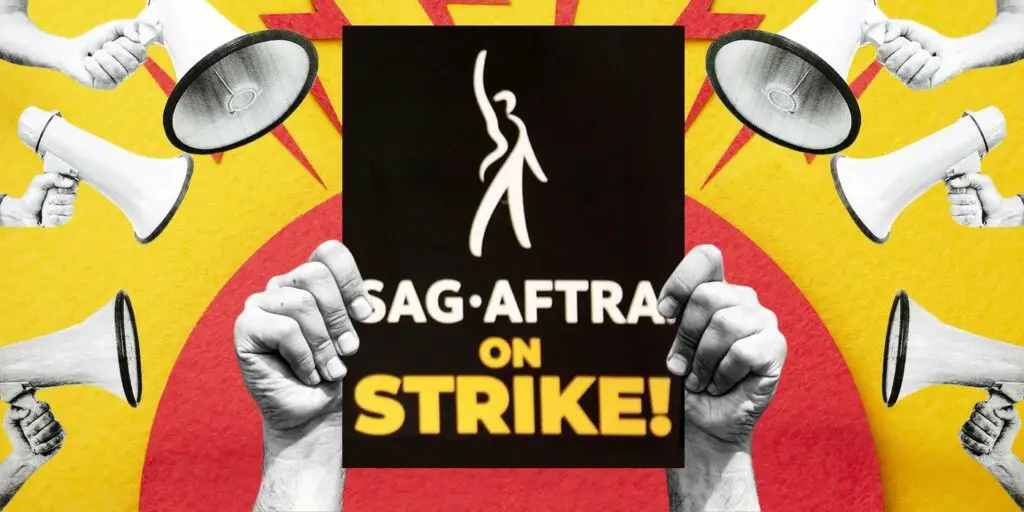It’s over four months since the Writers Guild of America (WGA) dropped their pen due to a negotiation breakdown with the Alliance of Motion Picture and Television Producers (AMPTP). About two months later, the Screen Actors Guild-American Federation of Television and Radio Artists (SAG-AFTRA) joined the strike. Now SAG-AFTRA is targeting the video game industry.

According to a report by Nadine Yousif of BBC, SAG-AFTRA talks with video game companies like Electronic Arts and Activision reached a “stalemate” on Friday 1 September 2023. The major concerns centered on artificial intelligence and pay rise.
ALSO READ: 13 Must-Have Video Game Accessories That Will Transform How You Play
The same day, “SAG-AFTRA’s National Board voted unanimously to send a strike authorization vote to SAG-AFTRA members”. The outcome of the votes will decide if the union will also picket video game companies if they don’t get a fair deal in the “forthcoming bargaining dates with signatory video game companies”. The signatory video game companies include;
- Activision Productions Inc.,
- Blindlight LLC,
- Disney Character Voices Inc.,
- Electronic Arts Productions Inc.,
- Epic Games Inc.,
- Formosa Interactive LLC,
- Insomniac Games Inc.,
- Take 2 Productions Inc.,
- VoiceWorks Productions Inc., and
- WB Games Inc.
“It has been nearly a year since SAG-AFTRA’s video game contract, the Interactive Media Agreement, was extended beyond the original expiration date as we negotiated with the companies for critical terms SAG-AFTRA members need,” the body shared in a post. “Unfortunately, throughout the negotiations, the companies have failed to address those needs.”
The next round of negotiation is scheduled to resume on 26 September 2023. Should negotiations fall through the cracks and the strike approved, SAG-AFTRA members will likely be banned from participating in video game productions or promotions—just like they are currently doing with television and streaming media.
How will the video game industry be impacted by the SAG-AFTRA strike?

The production of video games—especially triple-A games—involves a great deal of “performance capture” or motion capture. Trained professionals are equipped with motion sensors and cameras that track everything from their facial expressions to movement. These actions are used to build realistic video game characters.
Well, you guessed right. Most of the trained professionals who play these roles are members of SAG-AFTRA. The union represents about 160,000 people in the entertainment industry. So, if SAG-AFTRA members and the signatory video game companies fail to reach an agreement on the next scheduled negotiation date, the impact on the video game industry would be huge.
ALSO READ: Foreign Video Game Approvals In China Surpass Last Year’s Record With 31 New Endorsements
“The voice and performance capture artists who bring video game characters to life deserve a contract that reflects the value they bring to the multibillion-dollar gaming industry,” explained Duncan Crabtree-Ireland, SAG-AFTRA National Executive Director and Chief Negotiator. “Voice and performance capture AIs are already among the most advanced uses of AI: The threat is here. Without contractual protections, the employers are asking performers to unknowingly participate in the extinction of their artistry and livelihoods.”
However, whether SAG-AFTRA will go on strike or not will depend on how their members vote from September 5 to 25. A SAG-AFTRA strike targeting the video game industry may lead to a pause on some games already in development or the pushback of release dates.
“Once again we are facing employer greed and disrespect,” said Fran Drescher, SAG-AFTRA President. “Once again artificial intelligence is putting our members in jeopardy of reducing their opportunity to work. SAG-AFTRA is standing up to tyranny on behalf of its members.… The disease of greed is spreading like wildfire ready to burn workers out of their livelihoods and humans out of their usefulness.”
Audrey Cooling, the spokesperson for the 10 video game companies involved in the talks sent a statement to the BBC saying the video game companies are seeking a contract that will be fair for both sides and correctly measure up to the work done by performers.
“We are negotiating in good faith and hope to reach a mutually beneficial deal as soon as possible,” Cooling said.
Why SAG-AFTRA negotiations matter
Two decades ago, the video game industry was dominated by passionate people creating worlds for players to enjoy. Fast-forward to 2023, the industry is now run by corporate entities that are more concerned about making profits and cutting costs—which has often led to rushed, bug-ridden games, and overworking of devs.
The advent of advanced AI tools gave them the power to massively retrench staff, ask others to slash their wages, or work for longer hours. Consequently, the earnings of some performers in the video game industry have either stagnated or declined and are further eroded by rising inflation.
ALSO READ: Starfield Leaked Title Screen Sparked A Brawl That Questions Video Game Writers’ Relevance
Therefore, in addition to asking for protection of its members from AI invasion, SAG-AFTRA is also asking for a pay rise for video game performers, “11% retroactive to expiration and 4% increase in the second and third years of the agreement”. The body believes it will help its members to “keep up with inflation”. Other perks that SAG-AFTRA is asking for its members include:
- 5 minutes rest for every work hour for on-camera performers that off-camera performers are entitled to
- The presence of a medic for hazardous work or stunts, akin to movie sets
- Vocal stress protections
- Prohibition of stunts on self-taped auditions
- Protective language that requires consent and appropriate payment for the creation and use of digital replicas
- Training of AI systems with SAG-AFTRA members’ performances
Since the result of the strike authorization vote will come in before the next negotiations, a successful strike authorization vote will mount pressure on the video game companies and probably force them to shift ground knowing that another negotiation fallout may be greeted with a strike—which the video game industry is clearly not ready for.
Without the intervention of SAG-AFTRA, performers and actors may wake up one day only to discover that their roles have been replaced by AI by corporations eager to cut costs and maximize profits.
Remember to share and bookmark this website to stay up to date on all the hottest news in the gaming industry.



